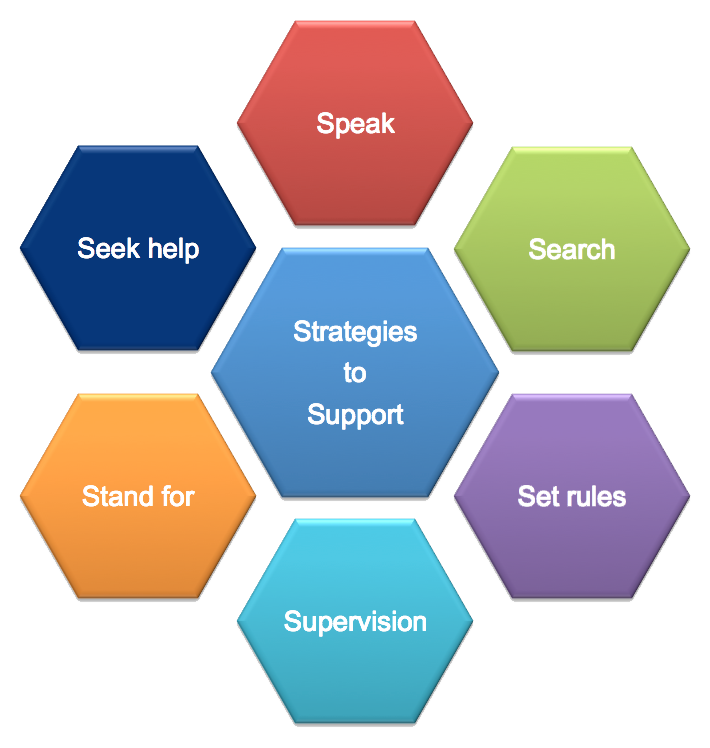
What can you do?
Parents can use a different set of strategies, according to the different situations, to prevent cyberbullying among children and young people. Try to use the “S2S” figure:

Speak
Actively communicate and talk openly with your child about:
- the risks and the opportunities of the internet and social networks,
- their online experiences,
- internet and social networks safety, and
- appropriate use of technologies.
Parents should also talk with their children about (in)appropriate contents in internet and websites that children can and cannot trust (not everyone on the internet is truthful), their children’s friends in social networks (if they know them personally), talk with their children about how to interact with others on the internet.
Search
Learn more about internet and social networks, and improve your knowledge regarding your child's online activities. Know the different online risks that you and your child are exposed to.
Know the tools and the strategies to cope with the online risks, as which filters and software are available to protect your child from the risks on the internet.
Set rules
Discuss with your child and explain some internet issues and rules, such as:
- why some websites are good/bad;
- use of passwords and security options;
- check permits when install and app, game, or program;
- advantages of the use technical filtering or parental control tools, and antivirus software;
- dangers that can occur when download of contents, files, videos, and pictures, viruses(protection against them).
Supervision
Stay nearby when children use the internet and you can also do shared activities together on the internet. Parents can also monitor their children’s online interactions, and supervise their children's profiles in social networks, and use software to prevent spam/junk mail.
Parents should know if they children use safety strategies, such as if children know their online friends personally and their privacy settings (if their information is public), if children give information about their address, phone number, the name of school, or places they use to visit.
Stand for
Let your child know that she/he is not alone and offer help when something has bothered her/him.
Promote a climate of confidence where she/he would inform you quickly if she/he has a problem on the internet or is in danger. You can also tell him/her any cyberbullying experiences you know to promote disclosure.
If you think that your child has been cyberbullied:
- Keep the evidences (messages, pictures, etc.)
- Teach your child not to respond to cyberbullying
- Inform the school and the authorities.
Seek help and inform others (school and authorities)
Contact a professional to help your child and you to deal with the situation, either if your child has been a cybervictim or a cyberbully.

This project has been funded with support from the European Commission. This publication reflects the views only of the author, and the Commission cannot be held responsible for any use which may be made of the information contained therein.

